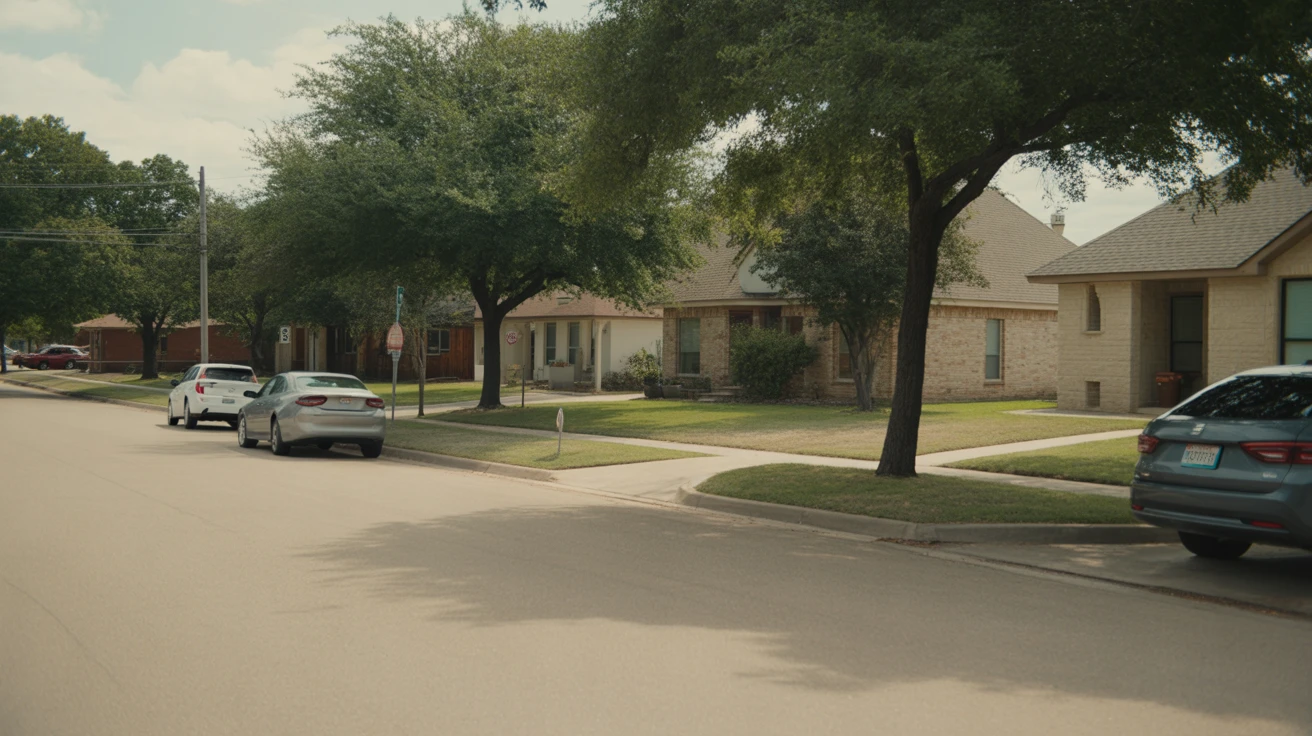
Budgeting Smarter in Allen
Whether you’re a new mover or long-time resident, understanding how your monthly expenses stack up in Allen is key to financial stability. In Allen, housing and electricity often make up more than 55% of a household’s budget. But depending on your lifestyle, your monthly budget in Allen can look very different. Here are some typical examples.
What Real Budgets Look Like in Allen
Let’s walk through the monthly budget of Jasmine, a 27-year-old single renter working a remote job with a gross income of $3,000 per month:
- Rent for a 1BR apartment: $1,200
- Utilities (electricity, water, internet): $250
- Groceries and dining out: $400
- Transportation (car payment, gas, insurance): $350
- Miscellaneous expenses: $200
- Savings: $600
Jasmine’s total monthly expenses come to $2,400, allowing her to save 20% of her gross income. Her biggest costs are housing at 40% and food at 13% of her total budget.
Now let’s look at a higher income household. Sam and Elena are a dual-income couple renting in Allen with a combined gross income of $7,000 per month. Here’s how their expenses break down:
| Category | Amount | % of Income |
|---|---|---|
| Rent for a 2BR apartment | $2,000 | 29% |
| Utilities | $350 | 5% |
| Groceries & Dining Out | $1,000 | 14% |
| Transportation (2 cars) | $800 | 11% |
| Miscellaneous | $700 | 10% |
| Savings | $2,150 | 31% |
| Total | $7,000 | 100% |
Sam and Elena are able to save a higher percentage of their income while still enjoying more discretionary spending. Housing remains their top expense at 29% of gross income.
Finally, let’s break down the budget of the Ortiz family, Allen homeowners with two kids and a mortgage:
| Category | Amount | % of Income |
|---|---|---|
| Mortgage (including taxes & insurance) | $2,800 | 29% |
| Utilities | $500 | 5% |
| Groceries & Household Items | $1,200 | 13% |
| Transportation (2 cars + gas) | $1,000 | 11% |
| Kids (daycare, activities, etc) | $1,500 | 16% |
| Miscellaneous | $800 | 8% |
| Savings | $1,700 | 18% |
| Total | $9,500 | 100% |
These estimates reflect common lifestyle costs in Allen. Individual budgets will vary.
Biggest Cost Drivers
Across all three budgets, we see housing as the dominant expense, ranging from 29-40% of gross income. This tracks with Allen’s rising home values and competitive rental market. In neighborhoods like Downtown Allen, rent can exceed $2,000/month for a 1BR apartment.
Utilities are another significant cost, especially in the summer months. In Allen, the cost of electricity can rise substantially from June to September due to heavy A/C use. Homeowners with larger properties may see even higher utility bills.
For commuters, transportation costs can also add up quickly. While Allen has public transit options, most residents rely on personal vehicles. A monthly transit pass starts at $84, but car owners must factor in loan payments, insurance, gas, and maintenance.
Tips to Stretch Your Budget Further
While Allen’s cost of living is higher than the national average, there are still ways to save:
- Shop at discount grocery stores like ALDI or WinCo Foods for pantry staples
- Sign up for a utility plan with free nights or weekends, like those offered by Reliant or TXU Energy
- Install energy-efficient windows, insulation, and a smart thermostat to reduce A/C costs
- Use Allen’s public parks, trails, and recreation centers for free entertainment
🏆 Pro Tip: Check for utility rebates and incentives in Allen to offset energy costs, especially during the hot summer months.
FAQs About Monthly Budgets in Allen
Can you live in Allen on $3,000/month?
Yes, but it will be tight. Assuming a rent budget of $1,200, you’ll have about $1,800 left for all other expenses, including food, transportation, and healthcare. Saving may be difficult at this income level.
What’s a realistic rent budget for Allen?
For most single renters, $1,200-$1,500/month is a reasonable rent budget. Couples can often afford $1,800-$2,200/month. Keep in mind that newer luxury apartments will be priced higher.
What’s a good budget for a $4,000/month income in Allen?
At $4,000/month gross, aim to keep housing under $1,400, transportation under $500, and food/dining under $600. That leaves about $1,500 for utilities, insurance, discretionary spending, and savings.
Planning Your Next Step
Whether you’re budgeting as a single, couple, or family, it’s important to understand your own spending patterns and priorities. Use the examples above as a starting point, then track your expenses to see how you compare.
Thinking of moving to Allen from another city? Check out our cost of living calculator to see how your budget might change. And for more tips on saving money in Allen, read our guide on 50 ways to trim expenses.
